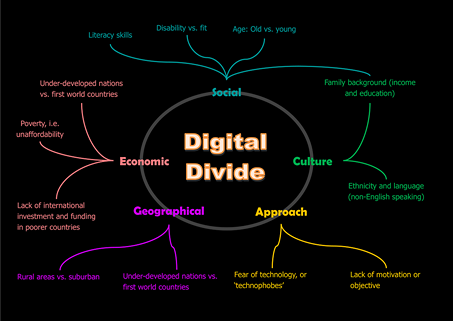Mobile Packages for Rural Areas: In today’s fast-paced digital age, access to the internet is often taken for granted. However, a significant digital divide persists, especially in rural areas where connectivity is scarce. This article explores the role of mobile packages in bridging this gap, aiming to empower rural communities and create a more inclusive digital landscape.
Introduction of Mobile Packages for Rural Areas:
The digital revolution has transformed the way we live, work, and communicate. However, a stark contrast exists between urban and rural areas when it comes to internet accessibility. Bridging the digital divide in rural communities is not just about providing internet access; it’s about unlocking opportunities and empowering individuals who have long been left behind.
Understanding the Digital Divide

Definition and Background
The digital divide refers to the gap between those who have access to modern information and communication technology and those who do not. In the context of rural areas, this divide is exacerbated by geographical challenges, limited infrastructure, and economic disparities.
Disparities in Internet Access
Urban areas enjoy high-speed internet and seamless connectivity, enabling residents to access information, education, and job opportunities with ease. In contrast, rural areas often face the challenge of unreliable or non-existent internet access, hindering their ability to participate fully in the digital era.
Challenges Faced by Rural Communities
Limited Connectivity
Rural communities grapple with the absence of reliable internet infrastructure. The remoteness of these areas makes it economically unfeasible for traditional Internet service providers to establish a robust network.
Infrastructure Barriers
Building infrastructure in rural areas is a complex task. The cost of laying cables and installing equipment is often prohibitive, leaving vast expanses without adequate connectivity.
Affordability Issues
Even if internet infrastructure were in place, the cost of accessing it remains a significant hurdle for many in rural areas. High subscription fees and the unavailability of affordable packages contribute to the digital exclusion of these communities.
Role of Mobile Packages in Bridging the Gap
Accessibility of Mobile Networks in Remote Areas
Mobile networks have become a lifeline for rural areas. The widespread coverage of mobile signals makes them a more viable option for ensuring connectivity in remote locations.
Affordability and Flexibility of Mobile Plans
Mobile packages tailored for rural users offer affordable plans with flexible options. These packages recognize the unique needs of rural populations, providing cost-effective solutions that fit within their budget constraints.
Tailored Solutions for Rural Users
Customized Packages for Varying Needs
Understanding the diverse needs of rural users, mobile service providers are introducing customized packages. These may include plans with limited data for basic users or unlimited plans for those requiring more extensive connectivity.
Incentives for Adopting Digital Services
To encourage the adoption of digital services, mobile packages often come with incentives such as discounted rates for educational apps, free access to essential services, or even subsidized devices.
Impact of Mobile Packages on Education
Facilitating Remote Learning
One of the most significant impacts of mobile packages in rural areas is the facilitation of remote learning. With access to educational resources online, students in remote locations can bridge the educational gap.
Enhancing Educational Resources Through Mobile Connectivity
Mobile packages provide students and educators in rural areas access to a vast pool of educational resources. From e-books to online courses, mobile connectivity opens doors to a world of knowledge that was once inaccessible.
Economic Empowerment Through Connectivity

Mobile Packages as a Tool for Entrepreneurship
Connectivity is a game-changer for rural entrepreneurs. Mobile packages enable them to market their products online, access financial services, and connect with a broader customer base, fostering economic growth.
Access to Online Markets and Financial Services
Rural businesses can thrive by accessing online markets and financial services through mobile connectivity. This not only increases revenue but also creates a more resilient economic ecosystem in these areas.
Healthcare Accessibility Through Mobile Networks
Telemedicine and Health-Related Services
Mobile packages contribute significantly to improving healthcare accessibility in rural areas. Telemedicine services allow residents to consult with healthcare professionals without the need to travel long distances.
Improving Healthcare Outcomes in Rural Communities
With the aid of mobile connectivity, healthcare providers in rural areas can access medical databases, consult with specialists, and stay updated on the latest medical practices. This ultimately leads to improved healthcare outcomes.
Community Engagement and Social Connectivity
Strengthening Social Bonds
Mobile packages foster community engagement by connecting individuals in rural areas. Social media platforms and messaging apps enable residents to stay connected with friends and family, reducing isolation.
Mobile Packages as a Means of Communication and Information Sharing
Communication is vital in any community. Mobile packages act as a bridge, allowing rural residents to share information, coordinate activities, and stay informed about local developments.
Government Initiatives and Collaborations
Programs Promoting Digital Inclusion
Governments are recognizing the importance of digital inclusion in rural development. Various initiatives are being implemented to subsidize mobile packages, making them more accessible to all.
Collaborations Between Mobile Service Providers and Government Agencies
Collaborations between mobile service providers and government agencies are crucial for extending network coverage. Public-private partnerships can help overcome financial and infrastructural barriers.
Overcoming Infrastructure Challenges

Innovative Solutions for Expanding Network Coverage
The challenges of rural infrastructure can be addressed through innovation. Satellite technology, mobile hotspots, and community-driven initiatives are examples of innovative solutions to expand network coverage.
Partnerships to Improve Infrastructure in Rural Areas
Public and private sector partnerships play a key role in improving rural infrastructure. By combining resources and expertise, these partnerships can accelerate the development of reliable internet networks in remote areas.
Success Stories: Showcasing Impact
Highlighting Cases Where Mobile Packages Made a Significant Difference
Stories of success highlight the transformative impact of mobile packages in rural areas. From improved educational outcomes to thriving businesses, these success stories inspire further efforts to bridge the digital divide.
Real-Life Examples of Improved Livelihoods Through Digital Connectivity
Individuals and communities have witnessed tangible improvements in their livelihoods due to enhanced digital connectivity. These examples serve as beacons of hope for other rural areas striving for similar progress.
Future Trends in Rural Connectivity
Emerging Technologies in Mobile Communication
The future holds exciting possibilities with emerging technologies in mobile communication. From 5G networks to low-earth orbit satellites, these innovations promise to revolutionize rural connectivity.
Anticipated Developments in Improving Rural Internet Access
Continued efforts in research and development aim to address existing challenges in rural internet access. Anticipated developments include more affordable and efficient solutions tailored to the unique needs of rural communities.
Promoting Digital Literacy
Importance of Educating Rural Communities on Digital Usage
Alongside improved connectivity, digital literacy is crucial for empowering rural communities. Educational programs focused on digital skills ensure that individuals can make the most of available technology.
Initiatives for Promoting Digital Literacy in Remote Areas
Governments, NGOs, and private organizations are actively involved in initiatives to promote digital literacy. These programs range from workshops on basic digital skills to comprehensive training programs for advanced users.
Conclusion
In conclusion, mobile packages are instrumental in bridging the digital divide in rural areas. From education to healthcare and economic empowerment, the impact of enhanced connectivity is profound. While challenges persist, the strides made so far provide optimism for a future where every individual, regardless of their location, can reap the benefits of the digital age for more details visit https://mobilepackages.net.
Frequently Asked Questions (FAQs)
Here are some important FAQs:
Are mobile packages in rural areas as reliable as urban services?
Mobile packages in rural areas are designed to be reliable, but challenges such as infrastructure limitations can impact their consistency. Ongoing efforts aim to improve reliability.
How can governments encourage the adoption of digital services in rural communities?
Governments can encourage adoption through subsidies, awareness programs, and collaborations with mobile service providers to offer affordable packages.
What role do community-driven initiatives play in improving rural connectivity?
Community-driven initiatives, such as setting up local networks and sharing resources, can contribute significantly to overcoming infrastructure challenges in rural areas.
Are there privacy concerns associated with increased connectivity in rural communities?
Privacy concerns exist and should be addressed through robust policies and awareness campaigns to ensure responsible use of digital services.
How can individuals contribute to promoting digital literacy in their rural communities?
Individuals can contribute by volunteering in literacy programs, organizing workshops, and advocating for the importance of digital skills in community development.
